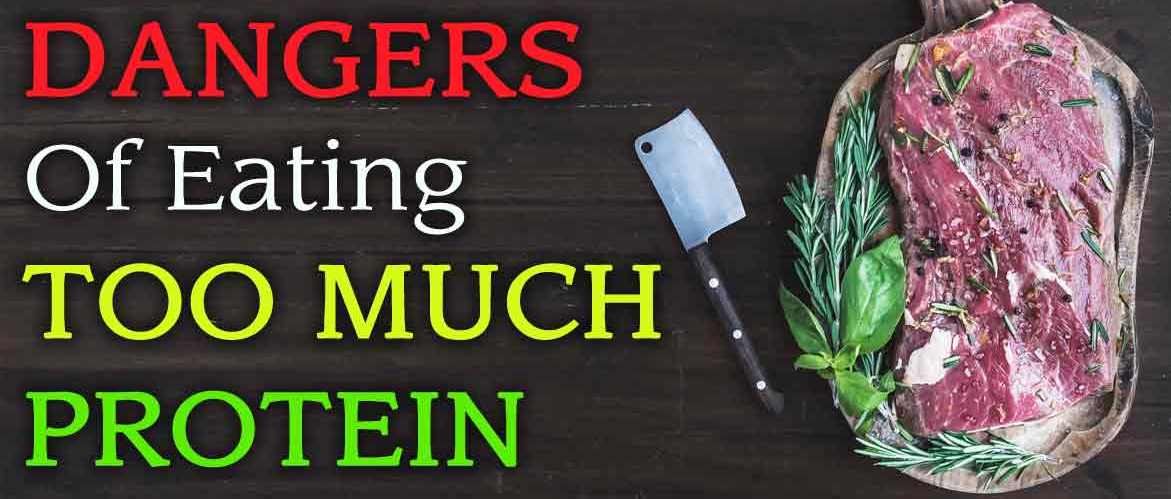Understanding Protein and Its Importance
Protein is made up of amino acids, the building blocks for most of the body’s structures and functions. The Recommended Dietary Allowance (RDA) for protein is 0.8 grams per kilogram of body weight per day for the average adult. Athletes or those engaging in heavy physical activity may require more to support muscle repair and growth.
Potential Dangers of Excessive Protein Intake
Kidney Damage in Individuals with Pre-existing Conditions
High protein intake can increase the workload on the kidneys, leading to a progression of kidney disease in people with pre-existing kidney issues. The kidneys are responsible for filtering out waste products from protein metabolism; thus, overloading them can exacerbate kidney function decline.
Increased Cancer Risk
Some studies suggest a link between high protein intake, particularly from animal sources, and an increased risk of certain cancers. However, research in this area remains mixed and is often associated with high consumption of processed meats rather than protein itself.
Bone Health Issues
There’s a longstanding debate about high protein diets and their impact on bone health. Some research indicates that excessive protein, especially from animal sources, can lead to calcium loss through urine, potentially weakening bones. Yet, other studies suggest protein is beneficial for bone health, highlighting the complexity of nutritional impacts on the body.
Heart Disease
High intake of red and processed meats, which are protein-rich, has been associated with an increased risk of heart disease. This is believed to be due to saturated fats and specific amino acids that can raise LDL (bad) cholesterol levels.
Digestive Issues
Consuming too much protein, especially without enough fiber from fruits, vegetables, and grains, can lead to digestive discomfort, constipation, and other gastrointestinal issues.
Weight Gain
Excess calories from any source, including protein, can result in weight gain. Although protein is less likely to be stored as fat compared to carbohydrates and fats, overconsumption without adequate physical activity can still lead to an increase in body fat.
Balancing Protein Intake
While it’s essential to get enough protein to support bodily functions and muscle maintenance, balance is key. Here are some tips for consuming protein in a healthy, balanced way:
Diversify Your Protein Sources
Include a mix of plant-based proteins (like beans, lentils, tofu, and quinoa) and lean animal proteins (such as chicken, fish, and eggs) in your diet.
Monitor Portion Sizes
Pay attention to portion sizes and try to spread protein intake evenly throughout the day.
Consider Your Individual Needs
Athletes and those engaging in regular, intense physical activity may require more protein than the general RDA.
Stay Hydrated
Increasing water intake can help manage the increased workload on the kidneys from metabolizing protein.
FAQs
How much protein is too much?
For most healthy adults, consuming more than 2 grams of protein per kilogram of body weight daily over long periods could be considered excessive and potentially harmful.
Can a high-protein diet impact kidney function?
In people with pre-existing kidney disease, a high-protein diet can worsen kidney function. However, in healthy individuals, there’s little evidence that it causes kidney damage.
Are plant-based proteins better than animal proteins?
Each has its benefits. Plant-based proteins come with fiber and less saturated fat, beneficial for heart and digestive health. Animal proteins provide all essential amino acids in one package. A balanced intake of both is ideal.
Is it possible to lose weight on a high-protein diet without risks
Yes, as long as the diet is balanced and includes a variety of nutrients. High-protein diets can support weight loss by enhancing satiety and increasing metabolic rate.
Can excessive protein intake lead to dehydration?
Protein metabolism produces nitrogen waste, which is excreted through the kidneys, requiring more water. Thus, inadequate water intake with high protein consumption can lead to dehydration.
What are some signs of excessive protein intake?
Symptoms may include dehydration, lethargy, irritability, digestive issues, and in severe cases, kidney damage.
Should I use protein supplements
Protein supplements can be beneficial for individuals who struggle to meet their protein requirements through diet alone, such as athletes or those with higher needs. However, it’s best to consult with a healthcare provider or a dietitian to determine the right approach for you.
Conclusion
While protein is an essential part of a healthy diet, moderation is key to avoiding potential health risks associated with overconsumption. Understanding your individual needs, choosing a variety of protein sources, and balancing your overall nutrient intake are crucial steps in maintaining a healthy and balanced diet. Always consider consulting with a healthcare professional or a nutritionist to tailor dietary choices to your specific health profile and lifestyle.
- Haze Mist Marijuana Strain - July 20, 2024
- Lou’s Legacy Marijuana Strain - July 20, 2024
- Willie Berrie Marijuana Strain - July 20, 2024

